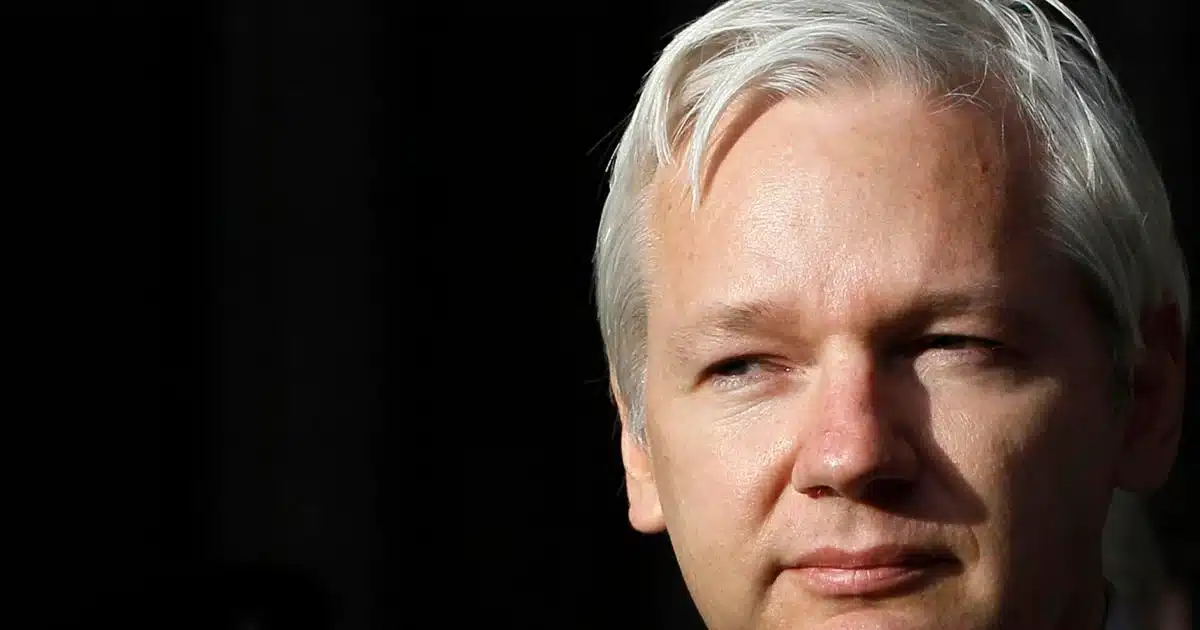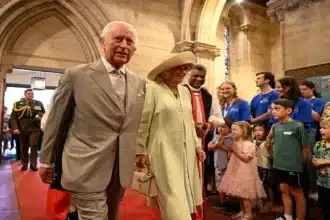The legal battle over Julian Assange’s extradition to the United States reached a critical juncture this week in London, marking the latest chapter in a saga that has spanned over a decade and ignited debates on press freedom, espionage, and the limits of governmental secrecy. Assange, the controversial founder of WikiLeaks, finds himself at the heart of a legal maelangethat has kept him confined within the UK’s judicial system, currently lodged in a high-security prison for the past five years.
At 52, the Australian national faces 17 charges of espionage and one charge of computer misuse in the US, stemming from WikiLeaks’ publication of a trove of classified US documents nearly 15 years ago. These charges have been the basis for the US government’s request for his extradition, a request that has been embroiled in legal challenges and appeals, drawing attention and support from human rights activists, journalists, and free speech advocates worldwide.
The Case Against Assange
US prosecutors argue that Assange collaborated with US Army intelligence analyst Chelsea Manning to illicitly obtain diplomatic cables and military files, which WikiLeaks subsequently published. This act, according to the prosecution, not only breached national security interests but also endangered the lives of many, including Iraqis and Afghans who had cooperated with US forces. James Lewis, representing the US, emphasized that Assange’s prosecution was predicated on “serious criminal offences” that had jeopardized both strategic interests and individual safety.
The Defense’s Argument
Conversely, Assange’s defense portrays him as a journalist who shone a light on US military misconduct in Iraq and Afghanistan, arguing that the prosecution is politically motivated and an affront to press freedom. They contend that Assange’s extradition would result in a “flagrant denial of justice,” highlighting WikiLeaks’ role in exposing governmental criminality, including acts of torture and extrajudicial killings. Edward Fitzgerald, one of Assange’s lawyers, voiced concerns over the severe penalties his client faces, which could amount to 175 years in prison, although US authorities suggest a lesser sentence is more probable.
Health and Humanitarian Concerns
Complicating the legal proceedings are concerns over Assange’s health, which has reportedly deteriorated significantly due to his prolonged confinement. Assange was notably absent from the recent court hearing, with his legal team citing illness. His wife, Stella Assange, who married him in 2022 while he was incarcerated, has been vocal about the dire state of his health, asserting that extradition would be tantamount to a death sentence.
Also Read: WFP Halts Food Aid to Northern Gaza Amid Escalating Conflict: Impact & Solutions
A Protracted Legal Odyssey
Assange’s entanglement with the law began in earnest in 2010, following his arrest in London on a Swedish warrant related to allegations of sexual assault, charges that were later dropped due to the passage of time. In a dramatic turn, Assange sought asylum in the Ecuadorian Embassy in 2012, where he resided for seven years before being evicted and arrested for breaching bail conditions in 2019.
A UK district court initially blocked the US extradition request in 2021, citing concerns over Assange’s risk of suicide under harsh US prison conditions. However, this decision was overturned on appeal after the US provided assurances regarding his treatment. The British government subsequently signed an extradition order in June 2022, though the Australian parliament has since called for his return to Australia.
The Path Forward
The High Court’s decision on whether to grant Assange a new appeal represents his last chance to avoid extradition through the UK’s legal system. Should the court rule against him, Assange could appeal to the European Court of Human Rights, though there are fears he could be extradited before such an appeal is heard. The justices, Victoria Sharp and Jeremy Johnson, may take several weeks to deliberate, leaving Assange’s fate—and the broader implications for journalistic freedom and international law—hanging in the balance.




